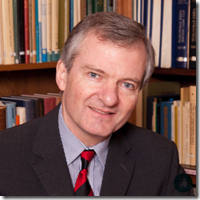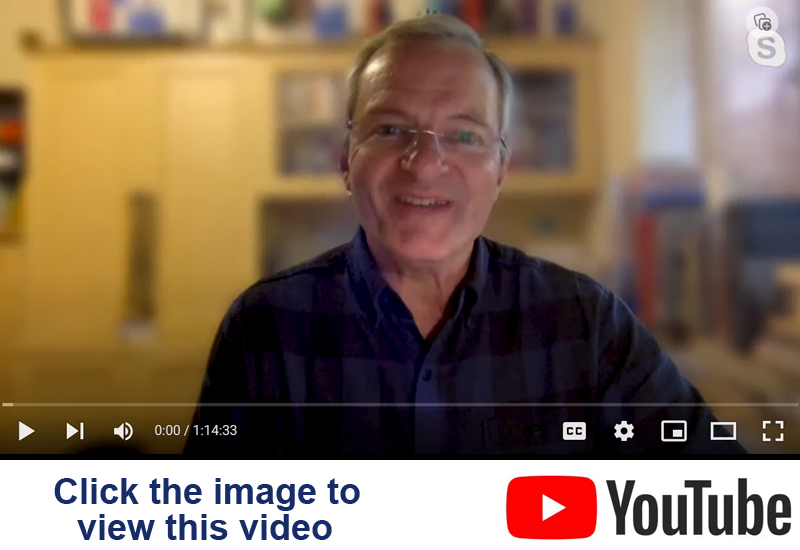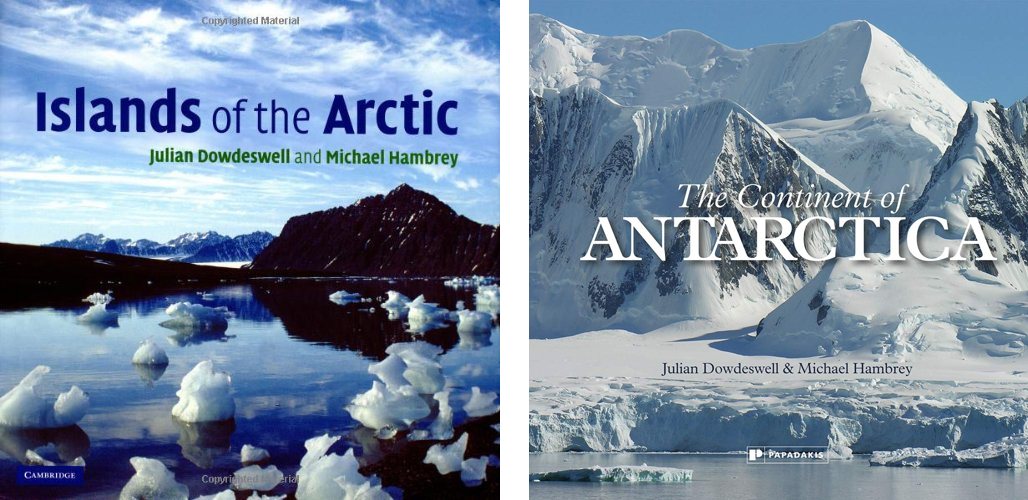| Featured Candidate |  |
 |
 |
||
|---|---|---|---|---|---|
|
|
 |
||||||||||||||||||||||||||||||||||||||||||||||||||||||||
| BIOGRAPHY | |
|---|---|
| Professor Julian Dowdeswell is recently retired Professor of Physical Geography and Director of the Scott Polar Research Institute in the University of Cambridge. As a Fellow of Jesus College, he has also taught in Cambridge on many aspects of the physical world and our changing environment. His research is on the form and flow of glaciers and ice sheets and their response to climate change, and the links between former ice sheets and the marine geological record. In a career of over 40 years he has taught in the universities of Aberystwyth, Bristol and Cambridge. He has written more than 400 scientific papers and 11 books, including “Islands of the Arctic’ (2002) and ‘The Continent of Antarctica’ (2018). Julian has travelled the world widely and, as a geographer, has expertise in the processes shaping our planet from glaciers and rivers, to deserts and oceans. He has also spent several years at sea on research ships, studying the oceans and the seafloor beneath. In 2019 he was Chief Scientist on an expedition in search of the wreck of Sir Ernest Shackleton’s ship Endurance. Since retirement, Julian, and his wife Evelyn (also a research scientist in glacial geology), have travelled on cruise ships in the Mediterranean, North Atlantic, Norwegian, US/Canadian and Caribbean waters giving guest lectures on a wide variety of environmental science topics (e.g. volcanoes, clouds, weather, oceanography, climate and environmental change, the seafloor, sea-level and coastal change, limestone landscapes and corals), and, in the Arctic and Antarctic, on glaciers and ice sheets, polar exploration and polar art. Examples used in these presentations are chosen for their relevance the locations of specific voyages. Julian has also spoken on environmental change issues at the World Economic Forum in Davos and the Nobel Dialogues Day preceding the annual prizes ceremony in Stockholm, and has represented the UK at a White House ministerial meeting on the Arctic. Julian was awarded the Polar Medal by Her Majesty the Queen for ‘outstanding contributions to glacier geophysics’ and has also received the Founder’s Gold Medal (2008) from the Royal Geographical Society. In 2011 he was awarded the Louis Agassiz Medal by the European Geosciences Union and in 2014 the IASC Medal from the International Arctic Science Committee ‘as a World leader in the field of Arctic glaciology and for his outreach and communication activities which have been instrumental for public understanding of Arctic change’. He was awarded the Lyell Medal of the Geological Society of London in 2018. A bay in Antarctica, "Dowdeswell Bay', has recently been named after Julian. |
|
| PRESENTATIONS / WORKSHOPS & CLASSES | |
|---|---|
| Examples of guest lectures given by Julian relevant to voyages to many parts of the globe, include the following. Regionally specific examples are included depending on the itinerary of specific voyages. Beneath the waves: a window on Earth’s past. Mapping the seafloor is a form of modern exploration, giving insights into plate tectonics and Earth’s geological past Volcanism: patterns and processes. Introducing volcanoes, their distribution, processes and hazards Volcanoes and Atlantic islands. Discussing the history and landforms on volcanic islands in the Atlantic and Caribbean Geological and ocean change in the Mediterranean Investigating the seafloor of the Med and the record it contains of past environmental changes The dynamic sea. Investigating waves, currents, tides, ocean change and pollution Weather, climate and our planet. Discussing how weather and climate affect the Earth today and in the past Clouds and optical effects at sea. Investigating clouds, mirages, haloes, glories and rainbows seen from ships Sculpting the Earth’s Surface. Showing how earth surface processes produce the variety of landforms seen on our planet Asteroid impacts and our changing Earth. Investigating the huge Chicxulub Crater in Yucatán and how asteroid impacts have changed Earth Limestone landforms and Mediterranean/Far Eastern landscapes. Discussing the processes shaping limestone and the spectacular landforms that are produced. Sea-level change through time. Outlining the controls on global and regional sea level and implications for the World’s coasts (e.g. Venice, coral reefs) The World’s dynamic coastline. Showing the variety of coast around the globe, from coral reefs and mangroves to rocky and icy shores. The search for Shackleton’s Endurance. Recounting his experiences as Chief Scientist on the first Weddell Sea Expedition in 2019 seeking the wreck of Sir Ernest Shackleton's ship. An introduction to the icy world. Introducing the elements of the icy world, from glaciers and sea ice to permafrost and planetary ice. Ice and environmental change. How glaciers and ice sheets are changing both today and in the past Alaskan/Icelandic/Greenland/Svalbard/Antarctic glaciers. Investigating the changing distribution and flow of glaciers from the Ice Age to the present. All about icebergs. Discussing the origins, distribution, dimensions and beauty of icebergs The Arctic: exploration and science. Outlining the Arctic story from indigenous peoples, through western exploration, to the Arctic today. The ‘Heroic Era’ of Antarctic exploration. Recounting the exploits and achievements of Scott, Shackleton and Amundsen and the race to the South Pole Science at the Poles. Introducing the development of our understanding of how the Arctic and Antarctic work Polar Art and Photography. Showing the beauty of the Arctic and Antarctic through the iconic art and photography collections of the Scott Polar Research Institute Julian also delivers scenic commentaries on many places and landscapes visited by cruise ships. |
|
| CRUISE HISTORY / EXPERIENCE | |
|---|---|
| Julian has recently retired as Professor of Physical Geography and Director of the Scott Polar Research Institute in the University of Cambridge, UK. He has given enrichment lectures on Viking Oceans, Viking Expeditions, Hurtigruten and Oceanwide ships and has much experience of corporate speaking generally. | |

